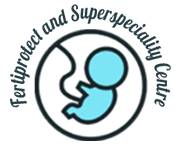In the emotional and physical journey of fertility treatments, couples often focus on medical procedures, hormonal injections, and dietary changes. However, one important yet underrated factor that significantly influences IVF outcomes is sleep. Quality sleep is not just a luxury; it is an essential biological process that regulates hormones, boosts immunity, and improves reproductive health. When your sleep patterns are disrupted, it may affect ovulation, sperm quality, and even embryo implantation. For those undergoing Infertility Treatment in Kalyani nagar, understanding the connection between restful sleep and fertility can make a vital difference.
The Science Behind Sleep and Fertility
Sleep regulates the production of essential reproductive hormones such as estrogen, progesterone, and luteinizing hormone (LH). These hormones control ovulation and menstrual cycles in women and support sperm production in men. Poor sleep can lead to hormonal imbalances, irregular cycles, and reduced ovarian function. Studies show that women who sleep less than six hours a night often have lower success rates during IVF treatments.
Similarly, men with interrupted sleep patterns tend to experience reduced testosterone levels, lower sperm count, and compromised sperm motility. Therefore, both partners must prioritise adequate rest as a part of their fertility preparation.
Impact of Sleep on Stress and Emotional Well-being
The IVF process can be mentally draining due to the pressure of results, hormonal changes, and frequent clinic visits. Lack of sleep further elevates stress hormones like cortisol, which can interfere with reproductive functioning. A well-rested mind is better equipped to handle emotional ups and downs.
Couples seeking IVF Treatment in Kalyani nagar should consider managing sleep as a non-negotiable part of their treatment plan. Dr Archana Salve often advises her patients to maintain a calming bedtime routine to stabilise their mental health, which in turn supports healthy conception.
Ideal Sleep Duration for IVF Success
Experts recommend 7–8 hours of uninterrupted sleep for individuals undergoing fertility treatment. However, it’s not just about the number of hours but also the quality of sleep. Light, restless sleep does not offer the same restorative benefits as deep sleep. Creating a dark, quiet, and cool sleeping environment can help the body enter deeper sleep cycles, enhancing hormone regulation and tissue repair.
How Sleep Affects Egg and Embryo Quality
During IVF, healthy egg development is crucial for a successful outcome. Melatonin, a hormone produced during sleep, plays a key role in protecting eggs from oxidative stress and improving egg maturation. When sleep is compromised, melatonin levels decline, which may affect egg quality.
Similarly, the uterine lining requires proper hormonal balance for embryo implantation. Women who sleep irregularly often face implantation failures due to lower progesterone levels. Quality sleep ensures a receptive environment for embryo development.
Lifestyle Habits That Disrupt Sleep
Several habits unknowingly interfere with natural sleep cycles:
- Excessive screen time before bed suppresses melatonin.
- Caffeine and sugary foods late in the evening delay sleep onset.
- Irregular bedtimes confuse the internal body clock.
- Overthinking and anxiety, especially during IVF, hinder relaxation.
To improve fertility outcomes, couples must work on fixing these habits consciously.
Sleep Recommendations for IVF Couples
- Maintain a fixed bedtime and wake-up time daily.
- Avoid mobile phones and laptops at least one hour before sleeping.
- Engage in calming activities like reading, meditation, or light stretching.
- Limit caffeine intake after 4 PM.
- Use comfortable bedding and block external light sources for better sleep.
Those opting for Infertility Specialist in Kalyani nagar should consult their specialist for personalised sleep and wellness plans. Many fertility clinics now integrate sleep therapy as part of a holistic treatment approach.
The Role of Naps and Daytime Fatigue
Short afternoon naps (20–30 minutes) can help combat fatigue without disturbing nighttime sleep. However, long naps or irregular dozing throughout the day can disrupt circadian rhythms. Balance is key.
Partner Support Matters
IVF is a shared journey. When both partners adopt healthy sleep practices together, it creates emotional harmony. Sleeping together at the same time, avoiding late-night distractions, and encouraging each other toward better routines can improve treatment experience and outcomes.
Those preparing for IVF Specialist in Kalyani nagar should remember that small lifestyle changes can make a big difference. Medical expertise combined with healthy living often delivers the best results.
Final Thoughts
While medications and procedures are vital in IVF success, the body’s natural healing mechanisms — like sleep — should not be ignored. Restful sleep promotes healthy hormone production, reduces stress, improves egg and sperm quality, and enhances embryo implantation chances.
Under the guidance of experienced fertility experts like Dr Archana Salve, couples can optimise their sleep patterns alongside medical treatment for better success rates. Treat sleep as therapy, not a routine — your dreams of parenthood may come true while you’re asleep.


 Select an element to maximize. Press ESC to cancel.
Select an element to maximize. Press ESC to cancel.